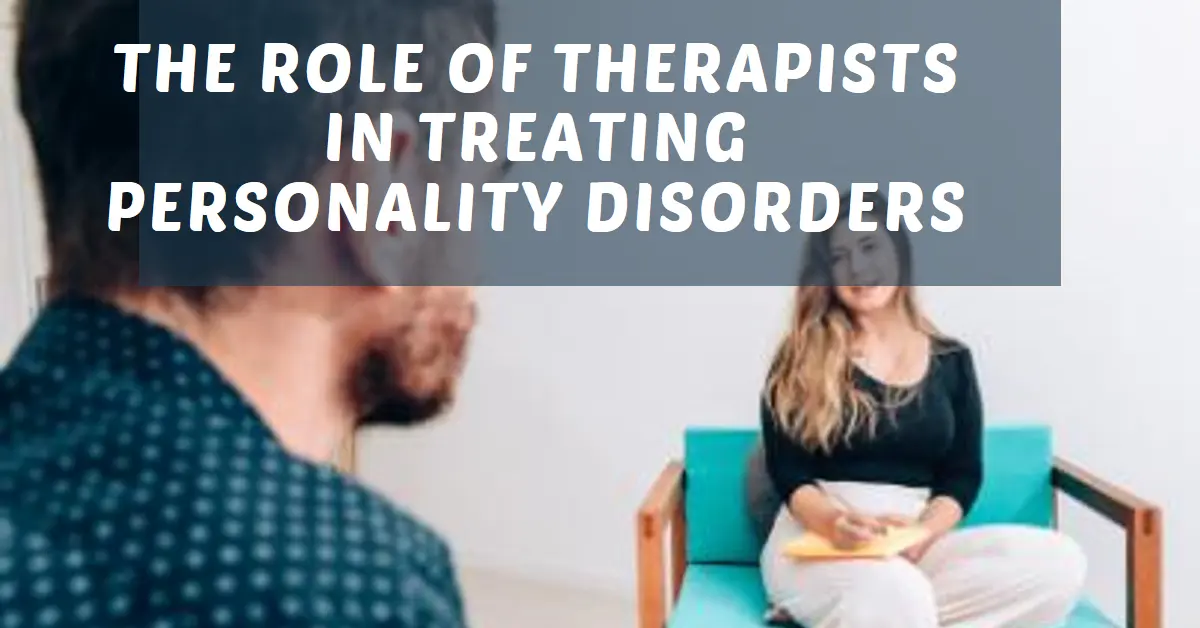Every one of us has a unique blend of characteristics that forms our personality and often these personalities are assessed or judged by people around us. The irony is that even astrologers are not far behind in predicting our personality based on numbers and mysticism. Due to its complexity, personality is also one of the most researched subjects by scientists.
Our personality features allow us to adapt and cope with changing environments and help us build healthy relationships. Yet, sometimes this adaptiveness takes a hit; develops unhealthy patterns of thinking, feeling, and behavior, leading to personality disorder. Fortunately, some therapies play crucial roles in overcoming personality disorders, making the role of therapists even more crucial.
So, let’s explore and learn more about personality disorders and how therapists help in treating personality disorders.
What is Personality Disorders?
Personality disorders are pervasive patterns of maladaptive behaviors, moods, and mindsets. A person with a personality disorder often has a hard time understanding emotions or controlling distress, affecting family and social life.
What Causes Personality Disorder?
Our personality development starts early in our lives and continues to be shaped by many various factors around us. The exact cause of personality disorder is unclear, however, many facets may contribute to the development of personality disorders which include:-
Genetics
In two different studies, researchers have found that genetic inheritance might be a part of the picture. Genes influence our personality by affecting how our brain processes information and handles emotions. They work like wiring that sets the stage for how we respond to different situations. You might inherit certain aspects of your personality from your parents, and these qualities are often referred to as your temperament.
Childhood Trauma
A recent study published on Frontiersin.org, suggests that one of the most common types of personality disorders, borderline personality disorder (BPD) is linked to early childhood trauma. The study also suggests that people with BPD experienced more childhood trauma and have signs of “fast Pace-of-Life-Syndrome,” including rapid growth, high metabolism, and stress.
Social Circumstances
Beyond genes and childhood traumas, social support can also act like demanding instructors, pushing individuals with predispositions towards maladaptive coping mechanisms and unstable relationships. Lack of social support Individuals with limited social support networks may struggle to cope with challenges and manage their emotions effectively, increasing the risk of developing or worsening personality disorders. Poverty, violence, and rigid societal expectations can further complicate the situation by adding extra layers of stress.
Types of Personality Disorder
There are different types of personality disorders and they are grouped into three clusters. These are:-
Cluster A
This category is characterized by odd and eccentric behavior. People in this cluster often struggle to have relationships with other people and may seem overly suspicious of the place and people. Some of examples of this category are:-
● Paranoid Personality Disorder
● Schizoid Personality Disorder
● Schizotypal Personality Disorder
Cluster B
People with cluster B personality disorders tend to act in ways that are dramatic and unpredictable. You might notice that they either crave a lot more attention or seem like they want much less than others. Some of the common symptoms of cluster b personality disorder are intense emotion, fear of abandonment, identity issues, manipulation, deceitfulness, dramatic behavior, feeling superior, sensitive to rejection, etc. There are four cluster B personality disorders and these are:-
● Antisocial Personality Disorder
● Borderline Personality Disorder
● Histrionic Personality Disorder
● Narcissistic Personality Disorder
Cluster C
Under this cluster, there are three conditions with symptoms like fear, anxiety, feelings of inadequacy, inferiority, over-dependence, sensitivity to criticism, lack of confidence, rigidness, stubbornness, extreme shyness in social settings, etc. The three conditions are:-
● Avoidant Personality Disorder
● Dependent Personality Disorder
● Obsessive-compulsive Personality Disorder
Role of Therapist in Personality Disorder Treatment
When a person struggles with a personality disorder, life may sometimes feel like an invisible maze, filled with confusion, emotion, and difficult relationships. For many, it can be challenging to navigate through, but it doesn’t have to be like this.
A skilled therapist for personality disorder can help and guide the individual toward emotional regulation, self-discovery, and healthier connections. Here are a few roles therapists play in treating personality disorders.
Providing Safe and Supportive Space:
Therapists create a non-judgemental and confidential space where you can open up your thoughts, feelings, and experiences without the fear of criticism and can build trust.
Therapists Understand Core Issues
When you consult a therapist for personality disorder, they actively engage in listening and dialog; work towards understanding your unique challenges and underlying patterns of your thoughts, emotions, and behavior that might be contributing to the condition.
Helping with Coping Skill
Through active participation in therapies, therapists ensure you are prepared with coping skills to manage intense emotions, distress situations, and interpersonal relationships more effectively.
Thought reframing
Personality disorder involves unhealthy thought patterns and beliefs. Therapists help you identify these patterns and replace them with a healthier perspective.
Building Social Skills
Another major role of a therapist is to teach you the importance of social skills, resulting in improved communication skills, healthier interpersonal relationships, problem-solving skills, and empathy.
Relapse Prevention Strategies
Personality disorder is often a chronic condition with the possibility of relapse, the work of a therapist involves developing effective strategies which can negate the chances of relapse.
Collaboration with Other Professionals
Depending on individual needs, therapists may collaborate with other healthcare professionals to provide a comprehensive treatment plan.
Type of Treatments for Personality Disorder
Personality disorder can be a complex condition and there’s no one-size-fits-all approach. However, with the right support and tailored strategies, a person with Personality disorder can significantly improve the symptoms and well-being. Here are a few main treatments or therapies for personality disorder.
- Cognitive Behavioral Therapy (CBT): CBT helps the individual identify negative thinking patterns and helps them develop adaptive coping mechanisms through techniques like cognitive restructuring and exposure therapy.
- Dialectical Behavioral Therapy (DBT): It is specifically designed for people with borderline personality disorder and teaches emotional regulation skills, distress tolerance, mindfulness, etc.
- Cognitive Analytical Therapy (CAT): CAT helps you understand the challenges of relationships and guides you in changing unhealthy behavior.
- Mentalisation-Based Therapy (MBT): It is a type of long-term psychotherapy, especially to treat borderline personality disorder, wherein individuals focus on how their beliefs, wishes, thoughts, and feelings affect their actions and behavior.
- Psychoanalytic Therapy: Also referred as psychodynamic therapy, is based on the idea that our past experiences and relationships shape our unconscious thought, behavior, and feeling.
- Medications: As of now there is no medication available that can cure personality disorder, but there are several psychiatric medicines that may help with symptoms of personality disorder.
Conclusion
Dealing with a personality disorder can feel sequestering and overwhelming. Therapists provide a safe atmosphere where you can put your hair down and express yourself without judgment.
Therapists help you learn coping mechanisms and transform those unhealthy patterns into healthier ones. By gaining knowledge about the causes, types, and treatment and by finding the right therapist for personality disorder you can release yourself from the clutches of personality disorder.






